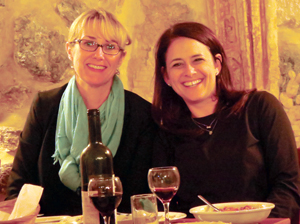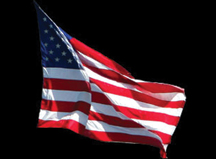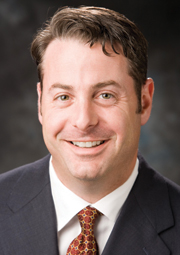Sharing the lessons of the Shoah
I have been attending the yearly Yom HaShoah Holocaust Memorial Service since its inception, and was most moved by the program this year. The April 13 attacks on our community underscore once again that not only do we as Jews need to remember the Shoah, but we are obligated to share its lessons with each other, and with the general community. How better to connect with the world that was taken from our people than to be moved by the images of Hungarian Jews arriving at Auschwitz-Birkenau, and by the voices of our children singing Yiddish songs. How better to appreciate the strength of our survivors and our traditions than to witness the contributions of three generations of the Klausner family. And how better to demonstrate the power of the Holocaust to teach than to invite students in the community-at-large to research and write about it, and to hear excerpts of several of the most outstanding essays.
I am most grateful to Mirra Klausner, to the organizations responsible for the program, and to the many participants.
The attacker unwittingly demonstrated that attacks against Jews, or against any people deemed different or undesirable, are attacks against all people. Sitting in the audience surrounded by survivors and other members of my family, as well as a number of non-Jews, I was reminded once again of the need to remember. “Al teesh-kach.”
Arthur B. Federman
The writer is a past president of the Midwest Center for Holocaust Education and the child of one of its founders
Moment’s significance lost
I attended the Yom HaShoah Holocaust Memorial Service Sunday at the Jewish Community Campus with my mother, Mrs. Elizabeth Nussbaum. I was impressed by the organizational talent demonstrated by the people that orchestrated the event. Certainly viewing the Auschwitz Album was gut wrenching and very difficult to watch. I am positive that it dredged up horrible memories in my mother’s mind. Those who decided to display those scenes definitely created a very charged emotional atmosphere which was very moving and stirring. At such an occasion this is appropriate and sets the stage for a message to be heard and internalized by the audience. Additionally, the singing by the Hyman Brand Hebrew Academy choir was beautifully done and the Yiddish songs added to the tone and mood of the service.
However, the significance of the moment I feel was lost. As we all are aware of, the Nazi regime was focused on destroying all remnants of the Jewish religion. This does not need any clarification as this is very well known and documented. The theme of the service was clearly universal and spoke to the importance of having tolerance for others and exhibiting kindness for all people.
Although those thoughts are important and essential in human relationships and vital for maintaining a healthy and viable society, they do not address the scope of the destruction of European Jewry that this service is dedicated to commemorate. When I heard mentioned repeatedly the need for education to abolish bigotry and hatred such as was demonstrated by the shooting that took place recently in Overland Park, I was stunned. Can we truly believe that lack of education caused this murderous outburst of a white supremacist?
However, I digress from the topic of this letter. The Nussbaum/Weiss families lost numerous members of our family due to the Nazi machine’s intent to murder all Jews. They were murdered because they were Jews, not because of some universally adopted doctrine of bigotry and hatred. They were specifically targeted because they were Jews. I truly believe that discussing universal problems such as you did is sacrilegious in this venue and tremendously underplays the ultimate sacrifice that my grandparents, uncles, aunts and many others suffered at the hands of the Nazi murderers.
Even the survivors, such as my father A”H and my mother, she should continue to enjoy the best of heath and live to see ongoing nachas from our family, should be offended by this display of ignoring what their torment and affliction meant.
If you honestly want to attend to this issue, then you need to formulate ideas that will strengthen Judaism in our community. Can we memorialize those holy martyrs when the bulk of our children are educated in public schools throughout the city unaware of their heritage? Based upon a rough estimate I would say that only 3 percent of the Jewish community attended this event. Where are they? Why isn’t there an outcry by the leaders of our community? Three thousand people can march when three innocent people are slain by a madman. How many people should be marching when 6 million were barbarically murdered by a madman, his name should be blotted forever, and his evil henchmen. Obviously I could list many concerns that should be at the top of the list for intensification in our community, but the question truly is why isn’t the community at large involved in the true meaning of the 6 million martyrs that we honor and remember at this time?
David Nussbaum
Denver, Colo.
Movie needs more exposure
Marlene Kahn and I went this past Saturday afternoon to see “Walking With The Enemy” and we both were very moved (sometimes to tears) by this story, which relates the part of the Holocaust that took place in Hungary during 1944 and 1945. It is a good movie and the story is based on a book. According to the Internet, this week it is only showing in the Kansas City metro area at the AMC 30 in Olathe and Standees in Prairie Village. Neither theater is offering many showings. It is our opinion that this movie should be made more widely available to the public. Marlene and I both are also of the opinion that this is a “must see” movie and not just for the Jewish community.
As a side note, after the conclusion of the movie as we watched the credits and reflected our feelings, I felt a strong desire to speak loudly “NEVER AGAIN,” but refrained from doing so, as there were no more than 10 others attending at this 5 p.m. showing.
Herb Spiegel
Prairie Village, Kan.
Marlene Kahn
Olathe, Kan.
Love versus hate
Kansas has been on the front pages of the international news, but this time it is not for its tornadoes, red shoes or dogs named Toto. Whatever fantasy the Wizard of Oz brought to the big screen does not compare to the recent real life murders of three innocent citizens.
I grew up in Overland Park and in the early ’70s there was a spate of anti-Semitism in downtown Overland Park, which was more like a small suburb at that time. One particular store, owned by a Jewish family, was targeted with hate messages on its windows. If memory serves, it was called Litwin’s. I don’t know if I needed a coat that winter, but I wanted to support the store against the face of anti-Semitism so bought a coat there.
The Jewish community in Kansas City is an old one. According to Wikipedia, there are some 19,000 Jews living in the greater Kansas City area. While it is not huge compared to other cities, it has always been strong. It is strong enough to be diverse and to open its doors to the general public — to invite all local Kansas City residents to join in its activities, without regard to their religious affiliation.
I am proud of the Jewish Community Campus in Overland Park for its efforts in bringing people together from every background and walk of life. Despite this tragedy, I believe the love it pours out on local residents will overcome the hate of one man.
Gayla Goodman
Mevasseret Zion, Israel
Our intertwined universe
Thanks to the articles about Sagi Rudnick and George Lebovitz in the most recent Jewish Life magazine that discussed Bar/Bat Mitzvah twinning ceremonies at Yad Vashem in Jerusalem, a family in Israel knows of these ceremonies and is very interested in learning more about it and even making this tour experience a family Bar/Bat Mitzvah tradition.
This Israeli family now will get the word out in Israel too!
What an amazing ripple effect has been created in our one intertwined universe, in which we all share — Kansas — Jerusalem — and on and on — from the Rudnick family’s precious vision coming to life in the article.
Mayaan Linett
Modi’in, Israel



 For 23 travelers who recently spent 10 days in Israel eating and drinking, climbing and floating, learning and connecting, a new community has emerged. It is a microcosm of the Kansas City Jewish community and of the wider North American Jewish community and worldwide Jewish community — it’s a group of people who care deeply about one another, who share in joy and sadness and who come together around the common thread of a shared history, faith and peoplehood.
For 23 travelers who recently spent 10 days in Israel eating and drinking, climbing and floating, learning and connecting, a new community has emerged. It is a microcosm of the Kansas City Jewish community and of the wider North American Jewish community and worldwide Jewish community — it’s a group of people who care deeply about one another, who share in joy and sadness and who come together around the common thread of a shared history, faith and peoplehood. Salute to a new flag
Salute to a new flag Each of us feels our own relationship with the tragic shootings that occurred last week on our Jewish Community Campus. Some of us were actually there when it happened. Some of us had just left the Campus, or were on our way there. Many of us easily could have been there. Some of us knew the victims. And as we hear what loving people they were, and are inspired by the grace and faith of their survivors, we all probably wish we had known them.
Each of us feels our own relationship with the tragic shootings that occurred last week on our Jewish Community Campus. Some of us were actually there when it happened. Some of us had just left the Campus, or were on our way there. Many of us easily could have been there. Some of us knew the victims. And as we hear what loving people they were, and are inspired by the grace and faith of their survivors, we all probably wish we had known them. Recently, I had the opportunity to discuss Parashat Vaykrah at Congregation Beth Torah. This particular Torah portion talks about the Temple and the custom of sacrifices. The priests are trying to educate the people to not just make sacrifices for G-d out of obligation, but to make these sacrifices with good intention and a pure heart.
Recently, I had the opportunity to discuss Parashat Vaykrah at Congregation Beth Torah. This particular Torah portion talks about the Temple and the custom of sacrifices. The priests are trying to educate the people to not just make sacrifices for G-d out of obligation, but to make these sacrifices with good intention and a pure heart.  David Ben-Gurion had a vision for the Negev to be the future for the Jewish state’s growth and prosperity. A pioneer, he trusted in the Jewish people to transform a seemingly uninhabitable desert into a hub of creativity and innovation.
David Ben-Gurion had a vision for the Negev to be the future for the Jewish state’s growth and prosperity. A pioneer, he trusted in the Jewish people to transform a seemingly uninhabitable desert into a hub of creativity and innovation.